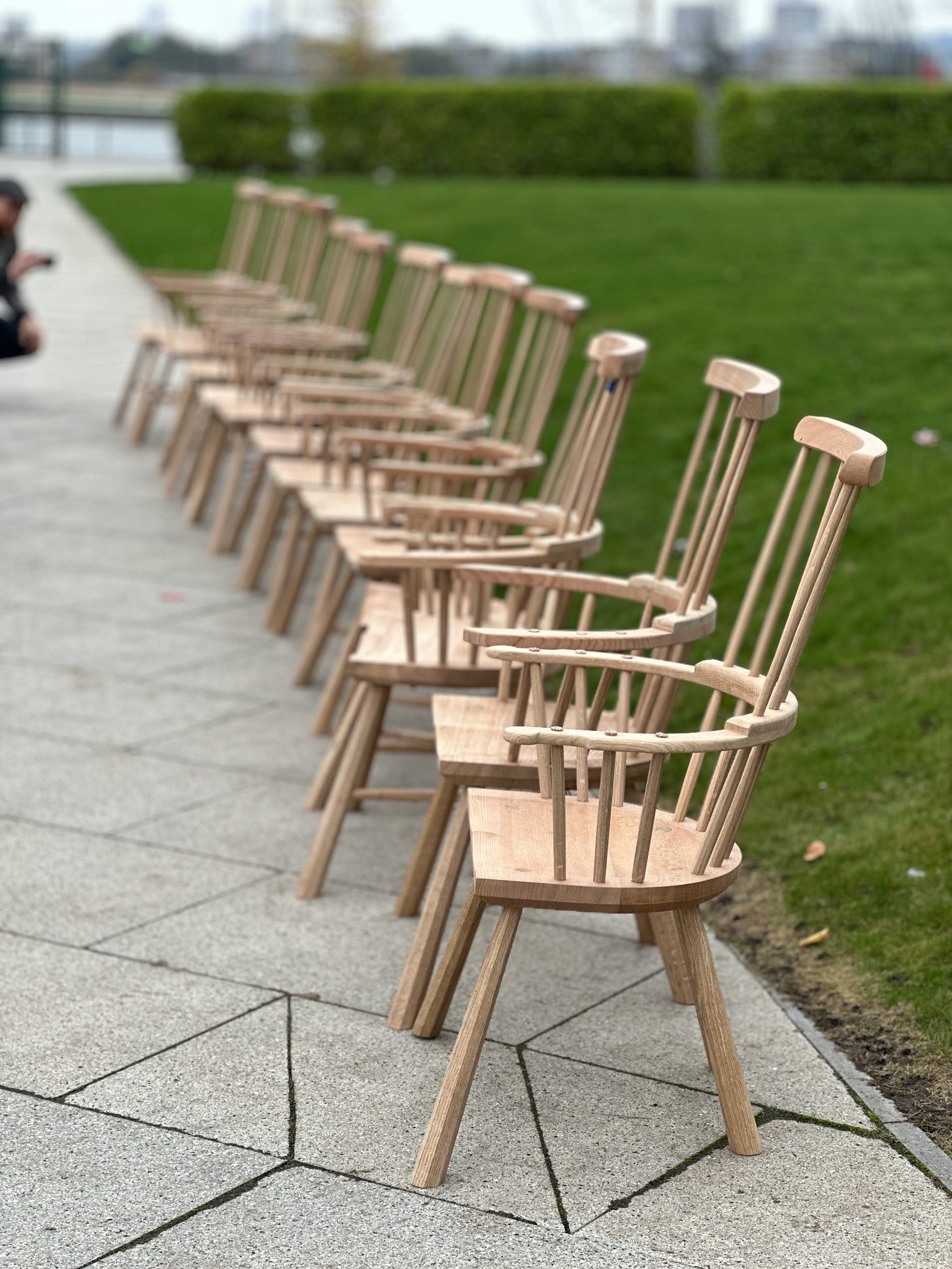There are times I get so turned around while traveling that I convince myself I’m on the right road, and I fool myself by saying, “Yup, this is way.” Until – oh crap, that’s the ocean – the truth is undeniable: I am 90 miles from where I intended to be.
And I am screwed.
Last weekend at the International Woodworking Festival in London, I spent two days talking with toolmakers and tool sellers, catching up after five years of looking at our industry through my laptop’s screen.
One conversation in particular in London now has me wondering if I’m driving 180° in the wrong direction.
The toolmaker was lamenting how competitors were marketing tools using the help of the influencer community.
In case you have been in under-a-rock mode, the influencer marketing strategy looks like this. You send a bunch of free tools to influencers. You follow up with them to see if there’s a chance of working together. Maybe offer some affiliate money. Maybe offer more free tools. Maybe just swap some exposure on Instagram – I’ll promote your work, and you’ll promote mine. Win-win.
The deluxe model of this marketing plan involves bringing the influencers to your factory or headquarters and creating an event that involves the tools, some good fun and lots of video.
I’m not criticizing this model. It’s not much different than what toolmakers did to wine and dine magazine editors for most of the 20th century. The only difference is that the new generation of influencers is younger, better-looking, funny and talented.
“I see these young influencers with their tattoos, piercings and huge followings – and they’re using our competitors’ tools,” the toolmaker said to me over the weekend. “Are we going to get forgotten?”
It’s a valid question and shouldn’t be dismissed. In the 1990s, DeWalt rose from obscurity to being a leading toolmaker in the trades with the help of its “swarm teams.” These armies of young, good-looking and clean-cut DeWalt employees drove their mobile workshops to thousands of jobsites every year. They held friendly competitions with the tradespeople (who can drive screws the fastest?). They put the yellow tools in their hands. And gave out merchandise, shirts, hats, smiles and accessories.
I don’t care if you like DeWalt tools or not. It doesn’t matter. In just a few years, DeWalt became one of the biggest power tool makers on the block.
Keep reading with a 7-day free trial
Subscribe to The American Peasant to keep reading this post and get 7 days of free access to the full post archives.




